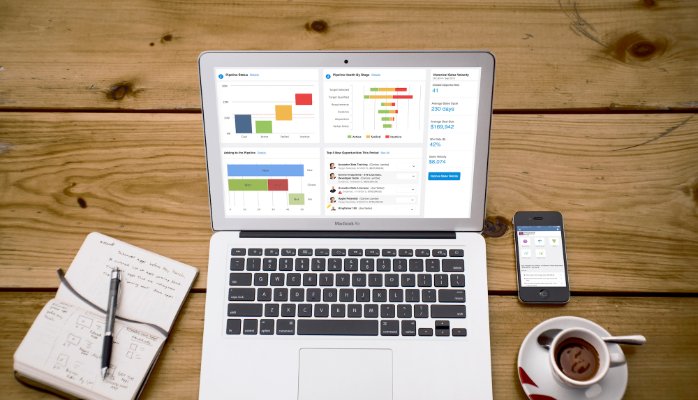The Sales Manager is the most critical role in a sales organization. If they don’t know how to measure/manage/coach the team it is highly unlikely that the company will be successful.
Here are 50 questions that a sales manager needs to ask to run their business and optimize the performance of the entire team.
Revenue Outlook
- What is closed for this period?
- What is quota?
- What is projected?
- What is possible?
- What changed this week over last week?
- Have I enough won + projected to make quota?
- What are the Must Win deals for the period?
- For the Must Win deals, is there a close plan?
- What deals outside the period can be accelerated?
- What deals need to be progressed for next period?
Pipeline
- What is the size of the pipeline in $ and # terms?
- Based on past performance, how much does a rep or team need to have in each stage of the pipeline?
- How much of the pipeline is Active?
- What is the shape of the funnel? Very wide at the top, bulging in the middle?
- What changed in the pipeline?
- What are the top new opportunities?
- What is the source of new pipeline deals?
- How long does it take to move from stage x to stage y?
- Is there a difference in velocity for won or lost deals?
- What is the conversion rate from Stage X to Stage Y in $ and # terms?
- Where is there leakage in the pipe?
- What deals are unusual in size? What is my pipeline mix?
Sales Execution
- Are deals increasing or decreasing in value as they progress through the pipe?
- Is the deal size changing frequently?
- What deals moved backwards from a given stage?
- Of the deals in each stage of the pipe, are they active or stalled?
- How many are languishing in a stage longer than normal for a ‘healthy’ deal?
- Are deals moving steadily though the pipe, or skipping stages, moving back and forth?
- Which deals are older, or slower than normal winning sales cycles?
- When deals are not closing, are they slipping, or being lost?
Sales Team
- Have I enough quota assigned to make total quota?
- How long does it take for a new rep to close the first deal?
- How long does it take new reps to achieve full productivity?
- How much pipeline is the rep developing themselves?
- How does one rep or team’s pipeline compare to others?
- Which reps have pipeline materially less than necessary?
- Which reps have more pipeline than they can handle?
- What is the relative performance of each of the team?
Sales Forecast
- What happened to the deals each rep forecasted X days ago?
- What deals moved out of the forecast?
- What deals are new in the forecast since I last looked?
- Is the forecast dependent on a few very large deals?
- What is the forecast accuracy for each rep and for the team?
- How much of my forecast is dependent on those who over-commit?
Key Performance Indicators
- Sales Cycle: How long does it take to win a deal?
- Sales Cycle: How long does it take to lose a deal?
- What is my average deal size?
- What is my $ win rate?
- What is my # win rate?
- What is the ratio between $ and # win rate?
Each of these questions gets to the heart of both leading and lagging indicators of current and future performance. The fundamental job of the sales manager job is first to understand the risks and vulnerabilities in their business and to identify mitigation strategies and coaching actions to help their team.
Historically sales managers have been underserved.
Up to now there has been a deficit of domain-specific real-time intelligent software applications to help them, and they’ve been expected to rely on generic analytics solutions or reports from their sale operations teams.
Now there are solutions available that inherently understand the world of the sales manager. These smart applications are available at the weekend when they planning their week, or on the road when they are supporting their teams.
Sometimes it’s tough out here. It all starts with the questions.
What questions did I miss?
If you want to read more of my blogs please subscribe. Follow me on Twitter or connect on LinkedIn. I want you to agree or disagree with me, but most of all: I want you to bring passion to the conversation.
Donal Daly is Executive Chairman of Altify having founded the company in 2005. He is author of numerous books and ebooks including the Amazon #1 Best-sellers Account Planning in Salesforce and Tomorrow | Today: How AI Impacts How We Work, Live, and Think. Altify is Donal’s fifth global business enterprise.

